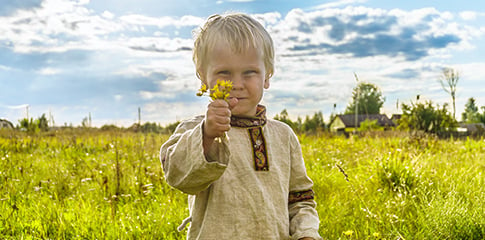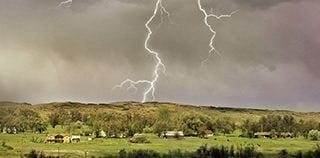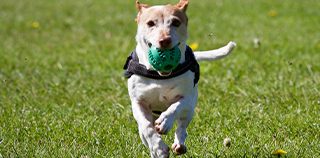Did you know that your diet can have an impact on your allergy symptoms? Although food isn’t typically the first thing you might think of, adjusting your diet can make a bigger difference than you think to your allergies.
Our guide covers what types of foods to avoid if you have hay fever and explains the food groups that could worsen your hay fever symptoms.
Histamine and hay fever symptoms
Histamines are chemicals made by your immune system. They’re part of your body’s defence mechanism and help it to get rid of things that bother it – like allergy triggers. Histamines make you sneeze or make your eyes water and itch.
Your body is trying to help you, but the overreaction to these histamines is why allergy sufferers sometimes need antihistamines.
Lots of different food and drinks contain histamine so it’s one to avoid on peak pollen days. Consuming food rich in histamines could make your symptoms worse. Here are some of the key foods to avoid with allergies:
- Alcohol – especially red wine
- Dried fruit
- Avocado
- Aubergine
- Spinach
- Shellfish
- Processed or smoked meats
These foods are bad for hay fever as they add to your histamine levels, which can worsen your allergy symptoms.
Drink alcohol in moderation
While having a couple of gin and tonics in the sun might seem like a great idea, excessive alcohol consumption can lead to more intense hay fever symptoms.
Most alcohol has high amounts of histamines in, but red wine has particularly high levels. In fact, if you experience headaches, flushing or itching after drinking red wine, this could indicate that you have histamine intolerance.
Drinking a large amount of alcohol can also leave you feeling thirsty and dehydrated which will make your hay fever symptoms worse.
On days when the pollen count is high, it might be wise to reach for low histamine clear spirits such as gin and vodka. Or if you’d rather avoid alcohol altogether, there are plenty of summery soft drinks and alcohol-free alternatives available that are just as refreshing.
Use our Pollen Pal tracker to monitor pollen levels near you next time you’re enjoying drinks in the sunshine.
Fizzy drinks, sweets and cake
Bad news for those with a sweet tooth – sugar is inflammatory. This means that if you suffer from hay fever you should avoid eating excess sugar as it’ll severely worsen your allergy symptoms.
White sugar, agave and corn syrup are all processed like sugar in your body. When seasonal allergies are reaching their peak, take a break from all sugars and sweeteners to avoid exacerbating your hay fever symptoms.
It’s a good idea to cut down on:
- Fizzy drinks
- Cakes
- Sweets
- Canned fruit
If you start feeling peckish while out and about, try reaching for low sugar snacks instead. This could include:
- Kale – Rich in carotenoids, which can help fight inflammation and prevent the release of histamine.
- Red onion – High in quercetin, a type of plant pigment that also serves as a fantastic antihistamine.
- Broccoli – Another great source of quercetin pigments.
- Salmon – We all know salmon is rich in omega-3 fats, but did you know these healthy fats can help reduce inflammation?
- Ginger – A natural anti-inflammatory, add ginger to your tea to help soothe allergy symptoms.
Nuts also make great low sugar snacks. Just be careful to avoid cashews and walnuts as these contain histamines too.
Steer clear of chocolate
Sadly, chocolate is also a no-go when it comes to alleviating hay fever symptoms. Cocoa beans are made from fermented cacao seeds and fermented products contain high levels of histamine.
Chocolate is brimming with histamines and is, sadly, one of those foods that’s bad for hay fever. It can also block your body’s ability to remove histamine from the body, leading to inflammation and other problems.
Be mindful of fermented goods
There are conflicting thoughts on whether fermented foods could help or hinder your hay fever symptoms. Despite being popular with the health conscious, fermented goods like kimchi, sauerkraut and kombucha contain high amounts of histamine. This increased amount of histamine could aggravate your hay fever.
On the other hand, fermented foods help to add good bacteria to your gut. This in turn may help to regulate your immune response, which could come in handy in the face of pesky allergies.
If you’d like to reduce the amount of fermented goods that you eat, you could replace these favourites for fresh fruit and veg – but be wary of having too much plantain, citrus, tomato, aubergine or spinach.
Avoid dairy products
Dairy products, like milk and cheese, can cause your body to naturally produce more mucus. This mucus build up can worsen your hay fever symptoms and make it harder to breathe when you’ve got the sniffles. The main dairy products to avoid include:
- Yoghurt
- Cheese
- Milk
- Cream
Luckily, there are some great dairy alternatives that you can try during the months when your hay fever is bad. These include almond, soya or oat milk and vegan cheese. Eating these substitutes in peak hay fever season could be a great way to manage your symptoms.
Foods that may help with hay fever symptoms
There is some good news – there are still plenty of tasty treats to enjoy without worrying about needing to blow your nose any more than usual. Various other foods can help reduce inflammation and aid your immune system, helping you to stay happy and healthy in peak pollen season.
Keep your kitchen stocked with:
- Pineapple – Contains bromelain enzyme which can help soothe inflammation and irritation.
- Berries – Full of antioxidants and vitamin C to help with histamine levels.
- Herbal tea – Some herbal teas such as ginger, liquorice root, turmeric and green tea contain antihistamine properties.
- Garlic – This antioxidant-rich probiotic can help prevent the release of histamine from some cells.
Don’t let hay fever hold you back. Keep your allergies in check by knowing which hay fever foods to avoid and keep your eye or check the pollen count in your area using our pollen calendar.
Sources
World Chocolate Day Dilemma Solved With Umbrellux DAO (globenewswire.com)
Do I Have a Chocolate Intolerance (or Chocolate Allergy)? (lowhistamineeats.com)
The Health Benefits of Dark Chocolate (selecthealth.org)
How to Strengthen the Immune System Against Allergies
5 Foods to Ditch if you Suffer with Hay Fever
Could your Gut Hold the Key to your Hay Fever?
Fermented Food in Asthma and Respiratory Allergies—Chance or Failure?













